Written by Katy Potts, ID Trainers for the Future
Welcome to the next update from the Identification trainers for the future programme. I’m Katy and I have been an amateur entomologist for the past 3 years. I am passionate about all aspects of wildlife, but particularly things with six legs. I recently graduated from Plymouth University where I studied Conservation Biology. After graduating I was keen to gain more knowledge in the identification of UK wildlife with particular focus and direction to conservation. The past five months have been an exciting journey into taxonomy and the world of biological recording, I'll begin by telling you what we have been doing over the past month.
Freshwater invertebrates's ID course
We recently took part in a Freshwater invertebrate’s identification course which combined days in the laboratory identifying specimens from the collections using keys with trips out into the wildlife garden to practice field identification and collecting methods.
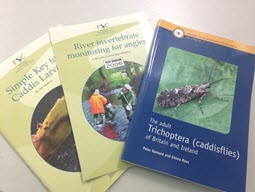
For the most part of this course we focused of how to identify the larval stages as they are often the indicators for water quality and are the most accessible life stage. We spent some time studying the surreal cases of dragonfly exuviae, to the intricate beauty of the gills along a Mayflies larvae’s abdomen. For me, the highlight species of the course were
the Caddisfly (Trichoptera) larvae, I particularly favoured the intricate cases in the cased caddis fly species.
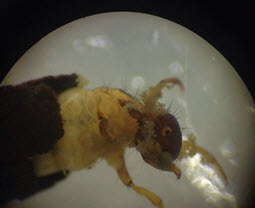
This course was incredibly enjoyable as we were able to engage with experts in freshwater invertebrate identification, whilst learning about the intricate ecology of these fascinating groups of organisms.
Decoding Nature
Over the summer months we have been travelling down the beautiful countryside of Dorset to help teach at the Tree School on the Decoding Nature project run by the Natural History Museum. Our most recent trip involved setting up a murder mystery for a school group of 10 years old. We helped to run a full murder crime scene investigation where the children had to use key skills in biology to work out who the murder of ‘Professor Sprout’. The children used DNA extraction techniques, soil pH testing, taxonomy of plants and determination maggot larval stages to pin point the murderer.
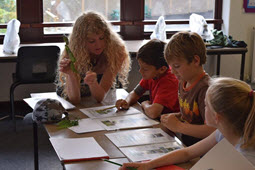
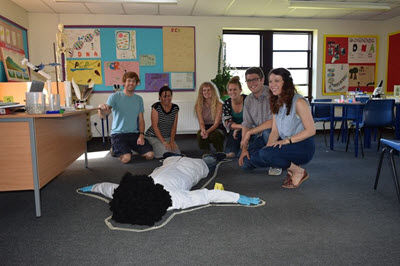
The identification workshop phase is almost complete and in September we will be embarking upon our curation placements where we will develop a specialism in a specific area of natural history.
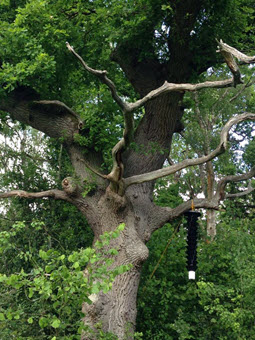
I will personally be working in the Coleoptera department under the guidance of Max Barclay to immerse myself in the world of Beetles ecology and taxonomy! Part of my placement in Coleoptera is fieldwork based and I have been going to Bookham Common fortnightly to collect specimens using lindgren funnel traps that were set in late May. I will run these traps until the end of September and then sort though the material to determine the diversity and abundance of Coleoptera fauna at the site. This experience will be extremely beneficial for me in terms of improving my Beetle taxonomy and in all honestly a thoroughly enjoyable time sorting through the wonderful diversity of Coleoptera from Bookham.
You can hear Katy talking about the ID Trainers programme on Thursday 19th November at the NBN Conference
